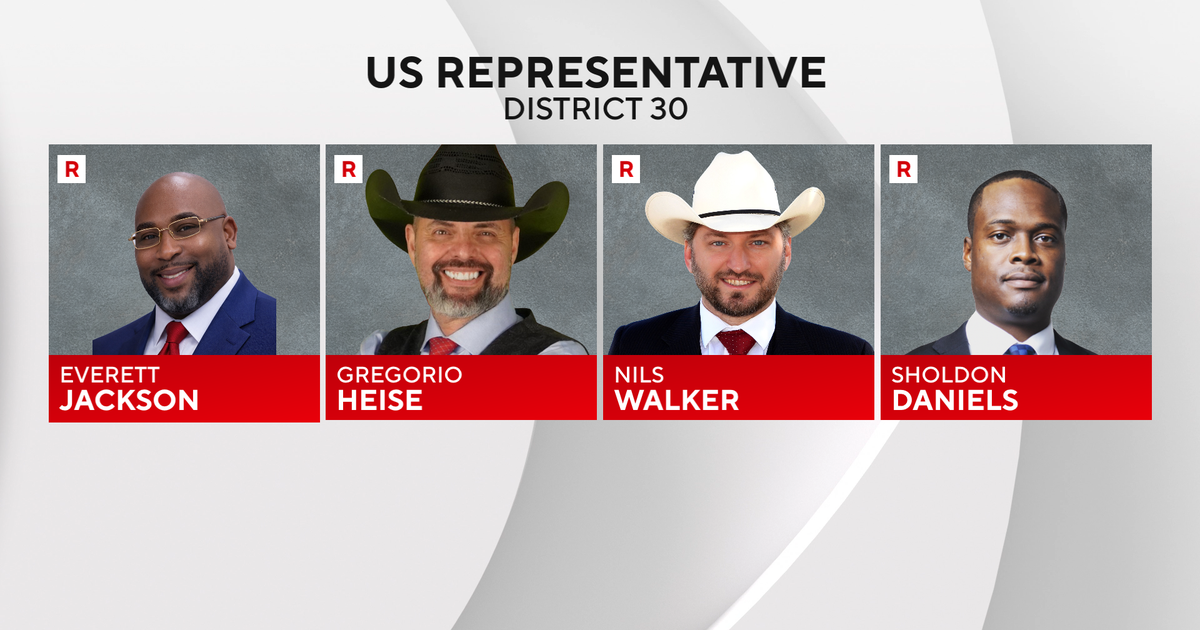Progressive group Demand Justice launches ad buy centered on Supreme Court's Wisconsin voting decision
Washington — Demand Justice, a progressive judicial advocacy group, is launching a six-figure ad buy centered around the Supreme Court's decision to curtail absentee voting in Wisconsin as it seeks to mobilize progressives around the importance of the high court ahead of the November election, CBS News has learned.
The $500,000 ad campaign, which will run online and on podcasts, features Jennifer Taff, a social worker from Wisconsin who voted in-person in the April 7 election. Wisconsin is the only state to hold in-person voting this month despite the coronavirus pandemic that has left nearly all Americans subject to mandatory stay-at-home orders.
Taff was photographed waiting in line to cast her ballot wearing a mask and holding a sign that read "This is ridiculous."
"The Supreme Court made us go in the middle of a pandemic to exercise our right to vote. It was ridiculous," Taff says in the 30-second spot. "You have now proven to me that you will choose politics over the wellbeing, health and safety — the very lives — of people in Wisconsin."
Brian Fallon, executive director of Demand Justice, said the ad campaign is the first of a "major investment" the group will make in the months ahead.
"We believe 2020 is the year that the Supreme Court goes so far overboard with partisan rulings that it makes the future of the court a mobilizing issue for progressives," Fallon said in a statement.
The Republican-appointed justices, he added, "have attacked voting rights before, but this time, they crossed a new line when they forced people to choose between protecting their health and exercising their right to vote."
Wisconsin's election was thrust into chaos last month as state officials attempted to limit in-person voting because of the coronavirus, which has prompted more than a dozen states to postpone their primaries or move to vote-by-mail. Wisconsin Democrats asked a federal district court to extend the deadline for absentee voting and the court agreed, giving voters an additional six days to mail in their absentee ballots.
State Republican leaders then asked the 7th U.S. Circuit Court of Appeals to halt the ruling, though it declined to do so. Wisconsin GOP lawmakers and the Republican National Committee appealed to the Supreme Court, which split 5-4 along ideological lines and granted the request to block the lower court ruling.
In a dissenting opinion, Justice Ruth Bader Ginsburg, joined by Justices Stephen Breyer, Elena Kagan and Sonia Sotomayor, lambasted the decision and warned the order could result in "massive disenfranchisement."
"The question here is whether tens of thousands of Wisconsin citizens can vote safely in the midst of a pandemic," she wrote. "Under the district court's order, they would be able to do so. Even if they receive their absentee ballot in the days immediately following election day, they could return it. With the majority's stay in place, that will not be possible. Either they will have to brave the polls, endangering their own and others' safety. Or they will lose their right to vote, through no fault of their own."
The vacancy on the Supreme Court following Justice Antonin Scalia's death in February 2016 was crucial in driving conservative voters to the polls and propelling President Trump to victory in the 2016 presidential election. Mr. Trump has tapped two justices — Neil Gorsuch, who replaced Scalia, and Brett Kavanaugh — to the high court, cementing its 5-4 conservative majority.
The president has also appointed 193 judges to the federal bench, leaving an imprint on the federal courts that will be felt for generations.
Progressives are working to make the Supreme Court a mobilizing issue for Democratic voters in the 2020 election, especially as the court's Democratic-appointed justices get older. Ginsburg is 87 and Breyer is 81.



